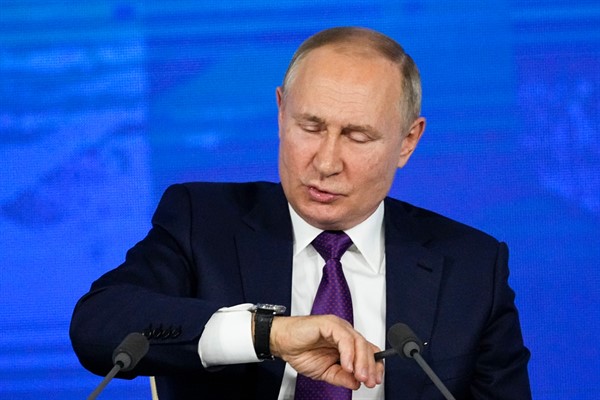Subscribe to receive Europe Decoder by email every Thursday. If you’re already a subscriber, adjust your newsletter settings to receive it directly to your email inbox.
In Other News
Boris Johnson gets a brief reprieve. British Prime Minister Boris Johnson got some good news as well as some bad news at the start of this week, with more emphasis on the latter. The good news is that the publication of a report into allegations of lockdown-breaking parties held at his official residence, 10 Downing Street, has been delayed. The bad news? The reason for the delay is that Sue Gray, the senior civil servant conducting the investigation, has referred the matter to the Metropolitan Police. Publication of the report is now expected Monday, though it could come as early as Friday. The Guardian reports that a group of senior Tory backbenchers is now ready to join a raft of newly elected MPs in their effort to force a vote of no-confidence against Johnson if the report finds that the law was broken. The EU may tell Apple to ditch the “lightning port.” EU member countries yesterday approved a new law mandating a common charger for all smartphones, based on a compromise text from the French presidency of the Council of the EU. The multinational tech giant Apple is one of the strongest opponents of the law, as it is expected to create a USB charging standard for all smartphones and force the company to ditch its so-called lightning charging port. Apple argues that such a one-size-fits-all approach to smartphone technology would stifle innovation. Now that EU member states in the council have adopted their position, they will enter into negotiations with the European Parliament to ratify a final version of the law. But given that the council was the major hurdle for the law’s initial passage, the writing now appears to be on the wall for non-USB chargers. Portuguese voters head to the polls. Early voting begins Sunday in Portugal’s snap general elections , and the campaign’s final polls continue to predict a win for the country’s governing Socialist Party. However, their lead has narrowed in recent weeks. Prime Minister Antonio Costa has led two consecutive minority governments since 2015, but his failure to secure the support of two smaller far-left parties for the proposed 2022 budget led to the collapse of the Socialist-led government. Voting will end the following Sunday, Feb. 6. Should Costa’s Socialist Party lose, or perhaps even if he wins, there has been speculation in Brussels that he might be chosen to replace European Council President Charles Michel, who could be ousted midway through his term amid dissatisfaction with his performance. Despite Portugal being a relatively small country, a defeat for the ruling Socialists there could dampen the recent momentum Europe’s center-left parties have generated in recent years. Social-democratic parties across the continent have gone from being exiled to the political wilderness a decade ago to now making up the largest grouping in the European Council. A loss in Portugal could complicate this narrative considerably.
Dave Keating is an American-European journalist who has been based in Brussels for 12 years. Originally from the New York City area, Dave has in the past covered the halls of the U.S. Congress in Washington, courtrooms of Chicago, boardrooms of London, cafe of Paris and the climate campaigns of Berlin.

